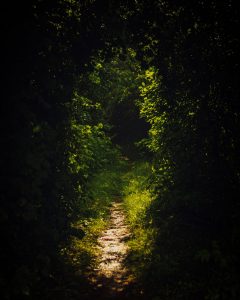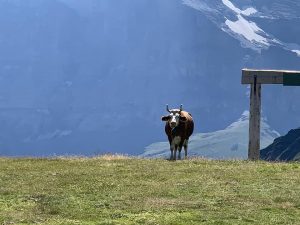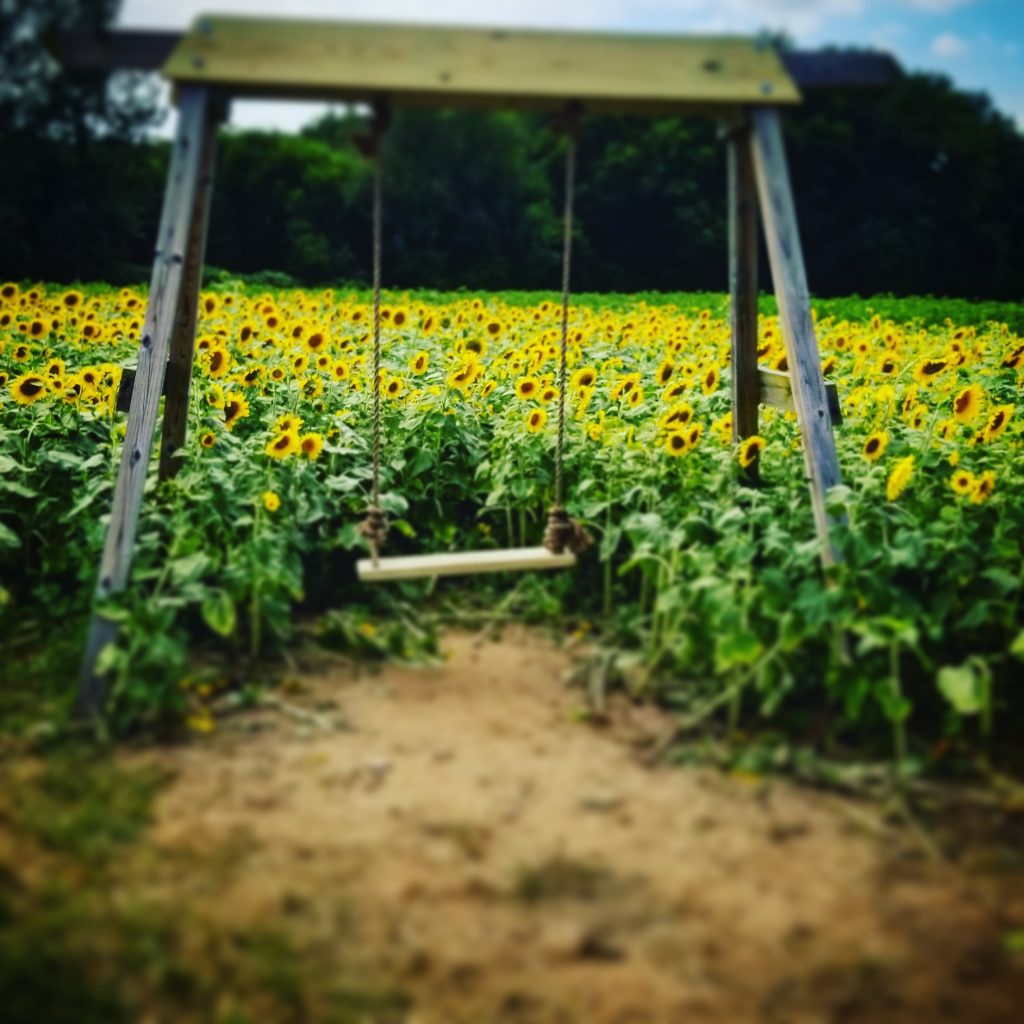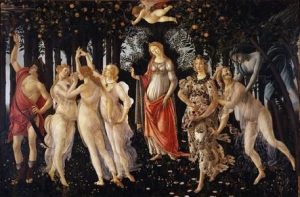I wore a lace kerchief kneeling with my great-grandmother in church. Holding it, putting it neatly over my hair, and sneaking a peek in the mirror, I always felt magic and a kinship with her and her far-away first home in Mexico. A doily was atop the bookcase of my Polish grandmother, ivory and intricate. Sliding my hand over its rich textures, I marveled at the elegance it brought. A stark, silent house held a corner of wonder with dainty sewing and wisdom in books. Both women left for a new country when no home was left for them. Their lace was for home, no longer for bridal dresses, dance gowns, or tea parties. Lacing their lives anew, they were intricate and delicate. They were made of the strongest silk.
Jan Rog
Jan Rog
Hour #11: An Extraordinary, Ordinary Camino
My Home: An Extraordinary, Ordinary Camino Don Quixote envisioned a mission; Sancho Panza saddled along for adventure. Jack Kerouac took us on the road, and a new world opened inside our country. Women gathered all over the world to march together. Power comes in journeying together, in pacing each small step in rhythm to a sweeping song. Promise awaits in exotic lands; thrill comes with surprises. Still, roots come from where we are now, deep breaths down, down, down as we ground ourselves in the rich land underfoot, right here and now. Power comes in standing still, closing eyes, and trusting the directon of our toes. These past years I've journeyed through my home: bus routes, sidewalks, nature trails, parks. Dogs know me and wag tails, I've come to see babies grow, and I've seen many pass me with waves some days, worries other times, and absence leading to perhaps never again. Power comes in embracing home, thanking those who came before, and preparing for others who will follow. We've tilted at windmills even in our quiet corner of the world Adventures and freedom became all the more precious on the bright days at home. We join together in our smaller communities now as we strive for a better world. This camino is near, yet its sun markers are blest; its pilgrims, holy. Ordinary home is extraordinary.
 Image by Tim Foster
Image by Tim Foster
Im
Hour #10: What Is Love?
Hello, dear Friends, Call me Ferdinand, El Toro, Taurus, or Wyoming: strong, proud names. Please, I ask that you not call me Matador. Just don't. Think about it for a moment. Now you understand my simple request. What is love? You might expect hearts and roses, but perhaps those are easy. I've been far away from the easy life for quite some time now. No, step outside of your own perspective and consider something new. Love is cherishing each day you are damned lucky to live. Fresh air blowing in from the mountains and sweet grass, those bring quiet moments to appreciate and savor, seek and remember, slow down and just experience. Love is the work you can do, so do it with all your energy. Be tenacious, and throw your whole body into this labor. So you sit at a desk? Get up early and run, run, run in the dark morning. Love is the family you raise and the family you serve. What do they need? How can you give so that they can grow? Love is the work you teach them to do; it's sharing the fresh land while working together. Love is this moment, right now. Bright days, rains that leave behind dark, rich soil: these are here under your feet. Look up to the sky; you'll never fnd this same clouds again. Our days pass too quickly with work, family, and being, yet isn't this enough?
You might not travel far, but you have command over your corner of the earth right now. Hold your head high as if you are wearing majestic horns (even if they're a bit small). Yes, return to your long-cherished dreams of love, but remember my sensible, sensing advice. Sincerely, Ferdinand, El Toro, Taurus, Wyoming just never Matador.

Hour #9: An Epic Journey
An Epic Journey Circling, flitting, diving, and sailing, the two butterflies chased each other over the fields of beets, ruby-sweet waiting to be picked, bitten, and dribbled. In summer's highest heat, they flutter close to bright buds near the slow-moving gentle waters of the bayou as the afternoon turn slowly, smoothly, softly into evening. Seemingly limitless strength guides each tremor and underlies each deceptively smooth layer of silk. Landing on majestic elk in the Western mountains or on cinnamon trees of the West Indies. No wonder we gasp, marvel, and dream just a bit when butterflies flutter by, shaking us awake to our waiting world. All the while, they fly on. Alive two weeks orten months, an epic journey propels them forward. It's our turn to follow.I also found this YouTube video of butterflies near a bayou. https://youtu.be/Tp3n1hR2EyY?si=g7y8pj6c4S-C-Fqe
Hour #8: A Night In Madrid
Open the window to a world dressed up. I'll wear my skirt and my hair up high You'll wear cologne and a red bow tie. We friends gather in the streets tonight, just we were last night, just as we'll be tomorrow. Kisses to our house-mothers sitting on apartment stoops while scheming, calling out, and whistling while sipping sangria. We end up in canoes at Parque Retiro with stars above reflected all around us as waves make them dance. Where does the night sky end and water begin? Too fast to find out, we meet up with Anne and Jorge, who else came with Nan that evening? Names fade, yet magic stays from nights of steady beats on Madrid's streets. A sip of wine, a flamenco dance on stage, conversations on that bench just outside of the church where many will pray rosaries tomorrow but will lean out windows and sing tonight. All the world is out tonight as you walk me home. My house-father has dozed off, so we sip cocoa with the others. Stories of simple pleasures do not excite but rather delight us. My world was somehow slower, even in the crowded city. Dare I return now, will life be as sweet forty years after the neon, moonlit, musical streets? Open the window to a world dressed up. I'll wear my skirt and my hair up high You'll wear cologne and a red bow tie.
Hour #7: Viator + Sunflowers of Childhood
Sunflowers lead me back to childhood when I had to look up, up, up to see petals waving and pressing high against the bluest sky. Golden dreams were the clouds' outlines. Heartbroken and jaded, I quietly plead, "Sunflowers, lead me back to childhood" when despair was never larger than sidewalk shadows or the lightning bugs' nighttime shows.
Summers of healing turned to winters of deep sleep. As I learned grace in slowing down, I'd let memories of sunflowers lead me back to childhood, sipping elixers of nature's berries, herbs, and flowers. Sighing in these silent years of distance and stunted dreams, I don't mourn challenges and losses along the rock-strew road. Grace comes quietly and with her gentle invitation to let sunflowers lead me back to childhood.
 Image by Martin Torrez
Image by Martin Torrez
Hour #6: Flat Earth — So THAT’s Where I Put It!
Peek over the edge of the flat world. What do you see?
Angels keep their car keys at the ready.
Demons have their motorcycle helmets.
Giant packs of bubble gum, a mattress-sized deck of cards for Celestial Solitaire,
receipts for Buy-1 Get-1 Half Off in the Afterlife all gather dust under us.
Single socks and dry-erase markers lay next to bills and spare change.
If ever your angel or demon needs something, just peek over the edge of the World.
My darling Steve chimed in:
Maple syrup has run over the edges of our Flat Earth, just like it flows over flat pancakes.
Look closely, and huge rats are underneath, licking up all of the sweet gooeyness.
They’re fat and diabetic, so don’t worry about them chasing us.
Besides, they’ll probably start swimming in circles because pancakes need milk.
Hour #5: Sinister, Shady, Signs of Malice
Early afternoon lines formed in front of the corner bodega as
construction workers, letter carriers, and business owners
came for street tacos and massive coolers of sweet tea,
soda, horchata — absolutely anything to break the heat
and haze of this late summer day.
For years this corner of the world had thrived in a massive age
of promise, industrial strength, entrepreneurship, and growth.
Immigrants found the hardest work, and they created neighborhoods,
churches, parks, and new welcome centers. All these were divided by
interstates, run down by neglect as eyes and energy moved on.
Who remained? Artists, families clinging to home, teenagers thrown away,
many who had been homeless for far long — all who found safety in the
brick factories, grain houses, lofts, and multi-storied homes.
Time moves forward, and progress returns. Bigger! Better!
newer but nothing for those who cobbled together safety
as shaky as these eroding buildings, yet a safety that was theirs.
Growing fainter, the chalk outline persisted on the sidewalk
as boots tramped over it, motorcycles zoomed over with burning rubber,
spits of iced sweet tea, soda, and horchata landing square.
“Developer buying us out,” whispered one passing by.
“He promised thousands more than he actually paid for
my great-grandmother’s home,” sneered another.
Every slur was slung and spun, heaped upon this nothing of a man.
Dirty concrete under a blistering sun: that was the place of death,
neatly marked and cordoned off that sweltering evening into darkest night
just months before. Stoned to death, but from where did the stones come?
Did slingshots send them, or did hands hold bricks and rocks firmly with each
pounding, pounding, pounding? Again, nothing remained of this big shot.
Boasting, greedy, loud, gluttonous, filthy-rich, scheming, conniving,
he was Nothing. The outline alone remained for all to visit and trample.
Far above, a gargoyle guarded all below. Quiet and solemn.
She perched high in the once gilded hotel now serving as a haunted house.
Around her were the stones of history, the bricks of family houses,
pebbles and rocks of people from these past hundred years.
Her eyes shone, and a deep laugh came from deep in her concrete being.
Hour Four: Catch!
Weaving gently, the three women sing out the hymns.
First holy, they then set tunes and dances in the celebration.
In response, we begin properly then break into raucous
Sneaking to each table while the adults dance, the little boy
indulges in flutes of champagne and ivory cake.
His charm will draw us into flirtations, and we, too, indulge in romance.
We swirl and twrill until the one flirtatious couple upturns the whole event;
for maybe twelve or maybe fifteen minutes, the drama plays out before
the big sister steps in and restores order anew.
Golden orbs and blue skies are perfect for this event of
delights, mischief, hidden winks, and fluttering hearts.
At the very end, we gather elbow to elbow,
teetering from libations and titillations.
Flowers sail through the air, and we jump to catch!
 La Primavera by Sandro Botticelli
La Primavera by Sandro Botticelli